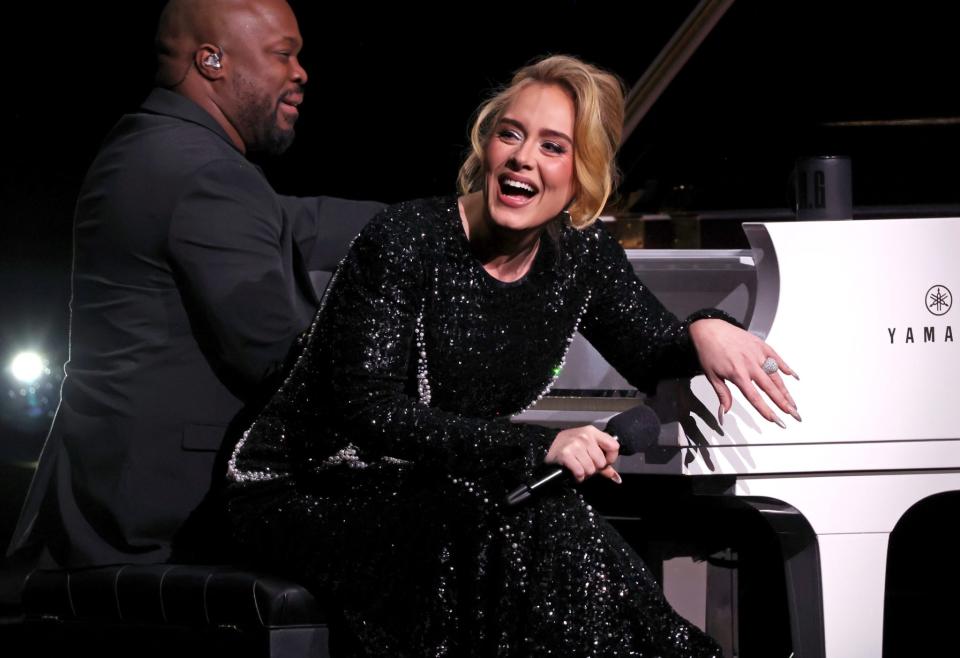Universal’s fury will have a major impact on TikTok, depriving it of some of the world’s most popular music

Starting today, TikTok users will no longer be able to set their videos to tunes from Taylor Swift, Bad Bunny, Billie Eilish, Drake, The Weeknd, Post Malone, Harry Styles, Adele, and many more artists. That’s because Universal Music Group (UMG), the industry’s most powerful player, has effectively waged war on ByteDance’s hit social media property.
How big a problem could this be for TikTok? When a hip-hop account on X asserted that the news meant “the TikTok era of music is over,” the influential producer Metro Boomin shared the post with the message: “It’s about damn time.”
“I love the creativity and appreciation the kids show for the music on TikTok, but I don’t like the forced pandering from artists and labels that results in these lifeless and soulless records,” he explained.
So, how did we get here?
Back in the hazy days of the pandemic, TikTok struck licensing deals with UMG and other major players, like Sony and Warner, that did not give the music giants any share of TikTok’s revenues. That may have made sense at the time, as TikTok’s ad business hadn’t yet taken off, but this situation quickly changed. Now, as the dominant social network for young people, TikTok has upped its rates and is reportedly pulling in somewhere in the region of $20 billion in annual ad revenue—around 10 times as much as it was in early 2021 when UMG signed its TikTok deal.
That deal expires today and, according to a UMG open letter yesterday, TikTok has not only failed to offer more favorable terms in negotiations—it’s “attempted to bully us into accepting a deal worth less than the previous deal, far less than fair market value and not reflective of their exponential growth.”
“How did it try to intimidate us? By selectively removing the music of certain of our developing artists, while keeping on the platform our audience-driving global stars,” UMG elaborated. “TikTok proposed paying our artists and songwriters at a rate that is a fraction of the rate that similarly situated major social platforms pay. Today, as an indication of how little TikTok compensates artists and songwriters, despite its massive and growing user base, rapidly rising advertising revenue, and increasing reliance on music-based content, TikTok accounts for only about 1% of our total revenue. Ultimately TikTok is trying to build a music-based business, without paying fair value for the music.”
In a far briefer statement, TikTok claimed UMG had “put their own greed above the interests of their artists and songwriters” and was guilty of providing a “false narrative and rhetoric.” The statement didn’t specify where the falsehood lay, but a TikTok source suggested to AFP that UMG was trying to get the company to accept terms like those given to streaming platforms such as Spotify, whereas TikTok videos can only use up to 60 seconds of a song.
It’s also worth noting that AI plays a part in this mess. Even UMG, the industry’s heaviest heavyweight, has acknowledged that it will be impossible to ward off the AI-music collision, but it’s already had some early success in trying to shape it, last August striking a vague but promising agreement with Google on the subject.
According to UMG, TikTok is playing dirty by “allowing the platform to be flooded with AI-generated recordings—as well as developing tools to enable, promote, and encourage AI music creation on the platform itself—and then demanding a contractual right which would allow this content to massively dilute the royalty pool for human artists, in a move that is nothing short of sponsoring artist replacement by AI.” If true, that’s some major chutzpah on TikTok’s part, given that AI creations can’t be copyrighted and, depending on the AI-training material, may in themselves violate copyright.
To be sure, UMG’s artists will suffer in the short term because of this move—TikTok is a crucial marketing channel these days—and UMG has acknowledged this fact. But if Metro Boomin (a UMG artist) speaks for his peers, maybe they’re happy to snatch some of that power back out of TikTok’s hands. Either way, the reaction to watch will be that of TikTok’s many users. More news below.
PS Good luck to Elon Musk in trying to wrest 25% voting control out of the Tesla board, now that a Delaware judge has voided Musk’s absurd $55 billion pay package. Tesla directors’ lack of independence has now been called out in the most humiliating fashion, so to give in to his latest demand would be conspicuously craven.
PPS Congrats to Apple, Microsoft, and Amazon for seizing the top three spots in the latest Fortune World’s Most Admired Companies list, which came out today.
PPPS Fortune is always trying to make Data Sheet a more valuable newsletter for our readers. If you could take a couple of minutes to give your honest feedback and answer a few questions about your experience, I’d appreciate it. It shouldn’t take you more than five minutes. You can find the link below. Thanks!
David Meyer
Want to send thoughts or suggestions to Data Sheet? Drop a line here.
This story was originally featured on Fortune.com

 Yahoo Finance
Yahoo Finance 